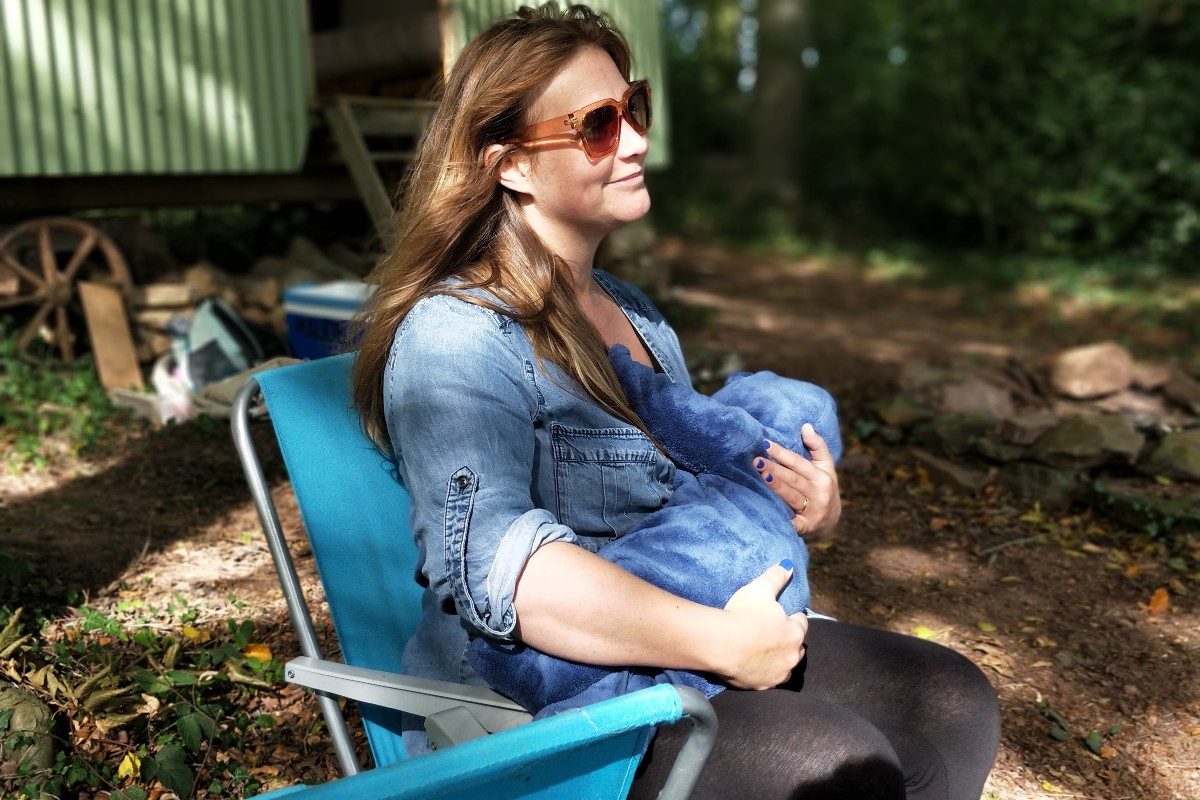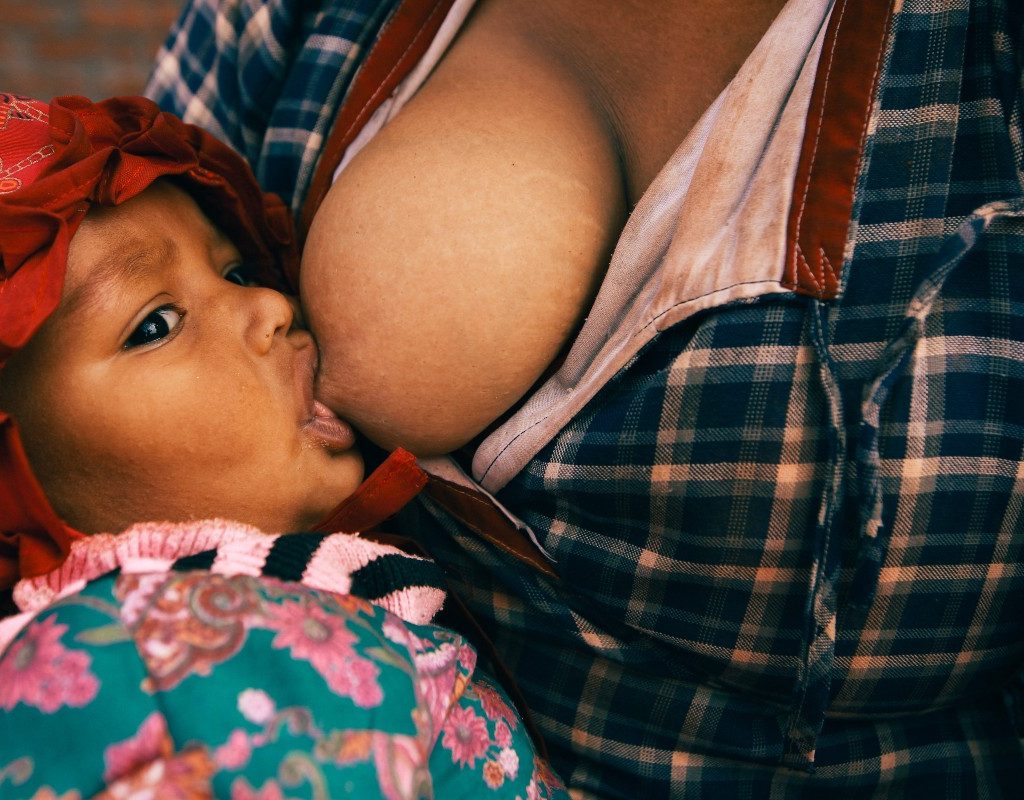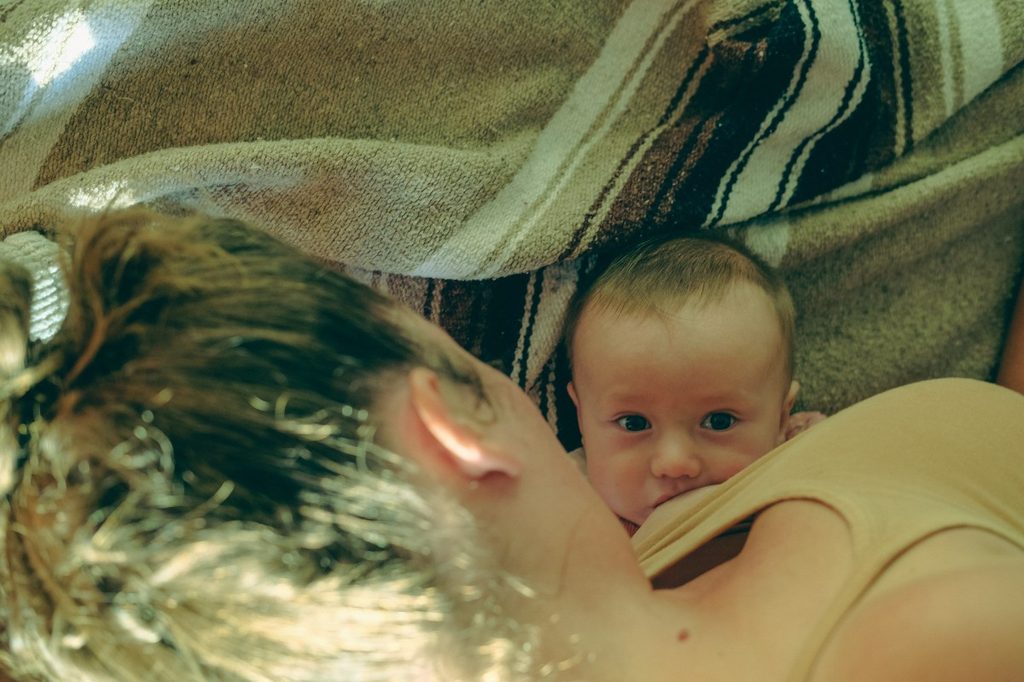Mothers and expectant mothers hear a lot of information when it comes to breastfeeding. Sometimes that information can be overwhelming and confusing and it can be hard to decipher fact from fiction.
In an updated policy statement in 2022, the APP cited that breastfeeding could reduce the risk for diseases and conditions like obesity for the baby, lower breast cancer rates in lactating parents, and promote a bond between the caregiver and baby. Despite the benefits and centuries of parents who have breastfed, there are many myths around the topic.
Misinformation about breastfeeding can cause parents to stop before they would like. A 2021 study suggested that interruption of exclusive breastfeeding and increased stress levels put mothers more at risk for postpartum depression. Separating breastfeeding facts from fiction is essential in helping parents meet their goals. Let’s debunk some common ones.
Breastfeeding is easy

This statement is a myth for so many reasons that it’s nearly impossible to name them all. Breastfeeding is hard, particularly at first. The process involves two people who are just getting to know one another. Some babies struggle to latch at first. Shallow latches can cause pain, cracked nipples, and bleeding. Newborns feed very frequently — sometimes every 90 minutes or even shorter intervals. Feeds can also take longer as the newborn learns to transfer milk efficiently. It can be all-consuming and painful.
In time, with the proper support, most parents and babies can enjoy breastfeeding. International board-certified lactation consultants (IBCLC) are highly trained in breastfeeding and the roles the parent, baby, and even support system (like another parent) can play. They can help you work through poor latches, slow weight gain, and confidence.
Milk loses nutritional value when the baby turns a year old

Solids become a child’s primary source of nutrition after their first birthday, but breastmilk doesn’t suddenly lose nutritional value. A 2001 study found that breast milk continued to provide significant amounts of critical nutrients, including fat and protein, even after a child turned 1. For this reason, the WHO has recommended breastfeeding for at least two years. The AAP’s policy statement caught the agency up.
Of course, toddlers can and will get nutrients from solids. A lactating parent can wean at whatever time is best for them and their baby, and they should feel empowered to make that choice without judgment either way.
If the latch looks good and doesn’t hurt, the baby is transferring milk effectively

A good, pain-free latch is a positive sign, but it doesn’t necessarily mean the baby is properly transferring milk from the breast or chest. Sleepy feeding and oral dysfunction, such as tongue ties, can affect how much the infant takes.
Since breastfeeding is a game of supply and demand, ineffective transfer is problematic. If the infant isn’t demanding enough by drinking it, the lactating parent’s body won’t think it needs to make more milk. This issue can affect milk supply and cause the parent to think they have a chronic low supply, which is a rare issue.
Working with an IBCLC to do weighted feeds can ensure a baby is getting enough milk. An IBCLC cannot diagnose ties, but they can flag the potential for one and refer the family to a pediatric dentist for further evaluation. Finally, they can set you up with a feeding plan that follows two critical rules: 1. Feed the baby (which may include supplementing with pumped milk from the parent, donor milk, or formula temporarily) and 2. Protect milk supply.
It’s not possible to make enough milk to feed your baby

Unlike bottles, you can’t tell how much a breastfed baby takes unless you do a weighted feed, which is best done with a lactation professional using a hospital-grade scale. This breastfeeding fact can worry parents, especially at first. If the baby is fussy, frequently waking to feed, or not gaining weight appropriately, the default reason is often to blame the parent’s milk supply. In fact, perceived low milk supply is a common reason for early weaning, according to research, including a 2022 study.
Some conditions, like thyroid dysfunction, diabetes, and insufficient granular tissue (IGT), can cause chronic low milk supply. However, most parents can make enough to feed their babies with the appropriate information and support. It’s unclear how many people this applies to, but experts say it’s generally less than 5%.
Breastfeeding has to be all or nothing

Also not true. People with actual chronic low milk supply can breastfeed and supplement with donor milk or formula. Also, remember, pumping is breastfeeding, too. If you need to return to work or want a night out, it’s possible to pump to replace the feed and give expressed milk to a baby. Breastfeeding can be a wonderful bond, but exclusive nursing or exclusive human milk feeding is not possible or desirable for everyone. What’s important is that everyone feels supported, informed, and empowered in their decisions.
This is not a myth: Fed is best

New mothers can often feel overwhelmed and exhausted, and struggling with breastfeeding can cause them a lot of anxiety. It’s important to remember that fed is best and there’s no shame in supplementing with a bottle of formula or exclusively formula feeding if that’s in the best interest of both the parent and baby.
However, if a new mother wants to breastfeed but is struggling, there are numerous resources available to help make that a reality. Being properly educated about breastfeeding can help new parents realize that there is typically a way to make their breastfeeding goals come true, even if they experience some hardships during their journey.
Breastfeeding is supposed to be natural, but sometimes it doesn’t feel that way, especially at first. It’s important to separate breastfeeding facts from myths so people who want the experience can have it. What’s more, human milk provides key nutrients, protection from diseases, and plenty of built-in snuggle time. IBCLCs are highly trained in lactation and can provide evidence-based information on breastfeeding, pumping, obtaining donor milk, and even formula feeding. You can breastfeed for as long or as short a time as you want.




